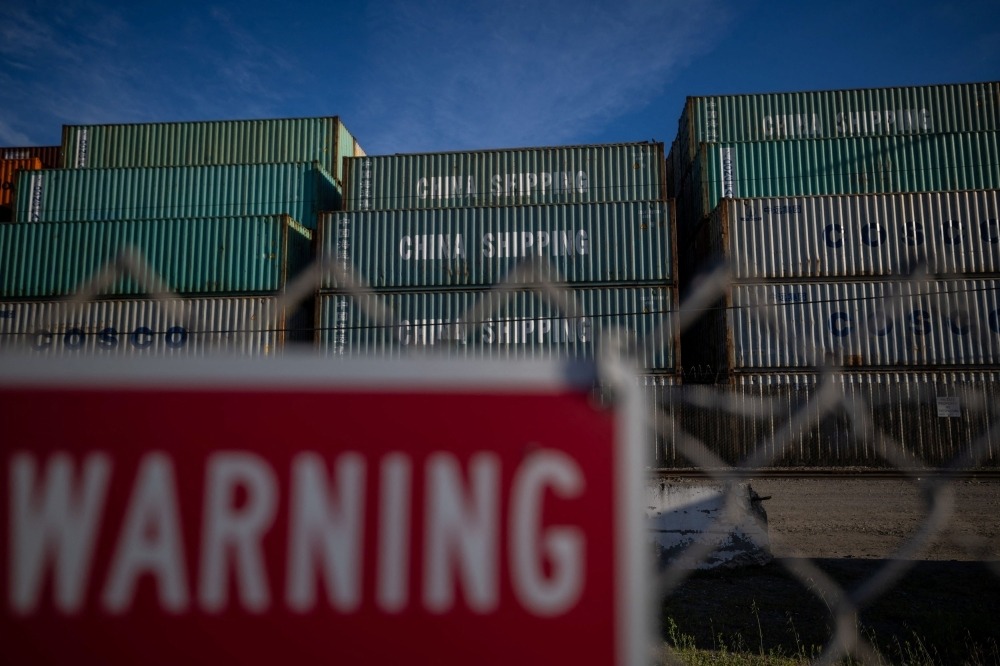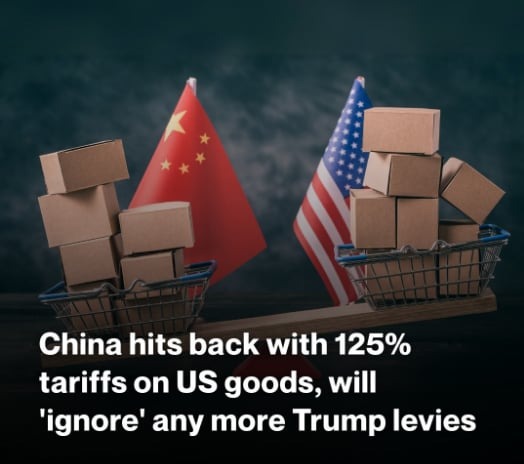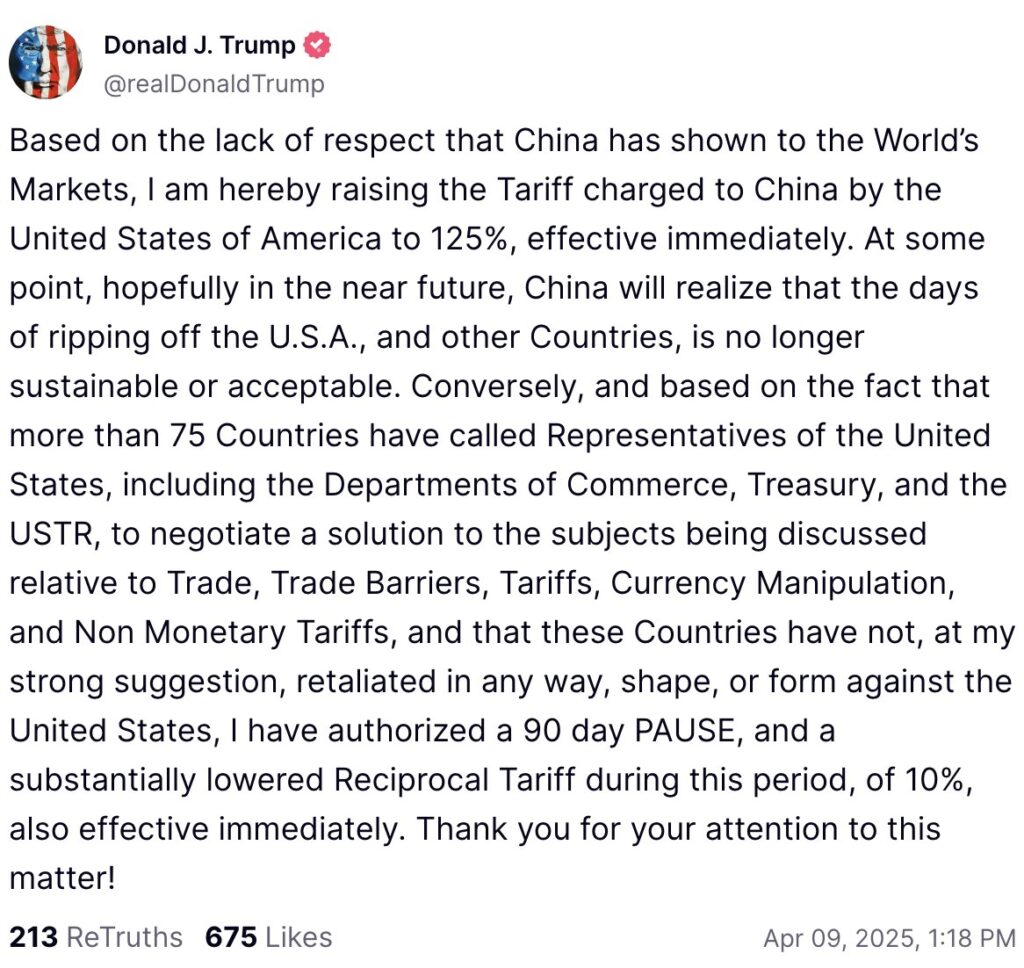
BEIJING, April 11 — Beijing today increased its tariffs on US imports to 125 per cent, hitting back against US President Donald Trump’s decision to hike duties on Chinese goods to 145 per cent and raising the stakes in a trade war that threatens to up-end global supply chains.
Meanwhile, the turmoil unleashed by Trump’s tariffs showed few signs of easing today, with markets tumbling and foreign leaders puzzling how to respond to the biggest disruption to the world trade order in decades.
A brief reprieve for battered stocks seen after Trump decided to pause duties for dozens of countries for 90 days quickly dissipated, as attention returned to his escalating trade war with China that has fuelled global recession fears.
Global stocks fell, the dollar slid and a sell-off in US government bonds picked up pace today, reigniting fears of fragility in the world’s biggest bond market. Gold, a safe haven for investors in times of crisis, scaled a record high.
“Recession risk is much, much higher now than it was a couple weeks ago,” said Adam Hetts, global head of multi-asset at Janus Henderson.
US Treasury Secretary Scott Bessent tried to assuage sceptics by telling a cabinet meeting yesterday that more than 75 countries wanted to start trade negotiations. Trump himself expressed hope of a deal with China, the world’s No.2 economy.
But the uncertainty in the meantime extended some of the most volatile trading since the early days of the Covid-19 pandemic.
Asian indices mostly followed Wall Street lower today. In Europe, China’s latest tariff hike sent stocks lower, leaving the STOXX 600 down more than 1 per cent on the day and set for another drop this week, one of its most volatile on record.
Bessent shrugged off the renewed market turmoil yesterday and said striking deals with other countries would bring certainty.
The US and Vietnam have agreed to begin formal trade talks, the White House said. The Southeast Asian manufacturing hub is prepared to crack down on Chinese goods being shipped to the United States via its territory in the hope of avoiding tariffs, Reuters exclusively reported.
Japanese Prime Minister Shigeru Ishiba, meanwhile, has set up a trade task force that hopes to visit Washington next week.
China deal?
As Trump suddenly paused his ‘reciprocal’ tariffs on other countries hours after they came into effect earlier this week, he ratcheted up duties on Chinese imports as punishment for Beijing’s initial move to retaliate.
He has now imposed new tariffs on Chinese goods of 145 per cent since taking office, a White House official said.
China hit back with new tariffs today.

“The US imposition of abnormally high tariffs on China seriously violates international and economic trade rules, basic economic laws and common sense and is completely unilateral bullying and coercion,” China’s finance ministry said in a statement.
Trump told reporters at the White House yesterday that he thought the United States could make a deal with China and said he respected Chinese President Xi Jinping.
“In a true sense he’s been a friend of mine for a long period of time, and I think that we’ll end up working out something that’s very good for both countries,” he said.
Xi, in his first public remarks on Trump’s tariffs, told Spanish Prime Minister Pedro Sanchez during a meeting in Beijing today that China and the European Union should “jointly oppose unilateral acts of bullying,” China’s state news agency Xinhua reported.
“There are no winners in a trade war,” the Chinese leader told his guest, adding that by acting together, the world’s second-largest economy and the 27-strong European trade bloc could help uphold “the global rules-based order.”
European authorities estimate the impact of the US tariffs on the region’s economy would total 0.5 per cent to 1.0 per cent of GDP. Given the EU economy as a whole is forecast to grow 0.9 per cent this year, according to the European Central Bank, the US tariffs could tip the EU into recession.
The euro has surged 1.7 per cent to US$1.13855, a level last seen in February 2022.

Trump’s decision for a 90-day suspension on tariffs gave room for only a “fragile pause,” French President Emmanuel Macron said, partly because tariffs on steel, aluminium and cars remained, as well as across-the-board 10 per cent duties.
Fragile, also, “because this 90-day pause means 90 days of uncertainty for all our businesses, on both sides of the Atlantic and beyond,” Macron said on X. — Reuters

